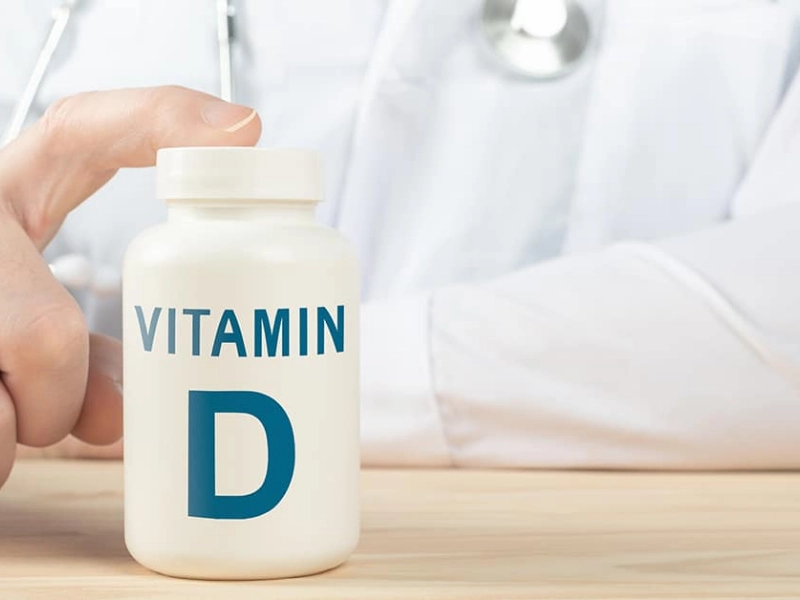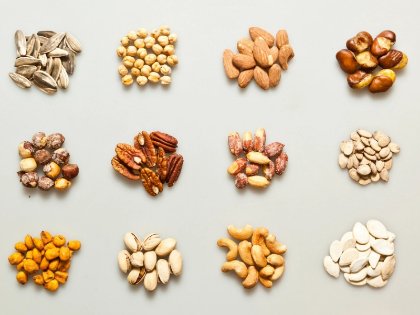Vitamin D and Breast Health: Supporting Women's Wellness
1. Value of Vitamin D Essential for many body processes, including immune system control, cell proliferation, and bone health, vitamin D is found in Often referred to as the "sunshine vitamin," the body may synthesize it from sunlight. Many people, however, do not get enough vitamin D from food or sunlight, which can cause deficits that affect general health. Maintaining appropriate amounts of vitamin D is especially crucial for women supporting breast health and avoiding related medical conditions.
2. breast tissue and vitamin D Studies of breast tissue have revealed that vitamin D is present there and influences cellular differentiation and proliferation. Essential for lowering the risk of breast cancer, this vitamin helps control the multiplication of breast cells and may prevent aberrant cell development. Higher vitamin D levels in women have been shown to be associated with a reduced incidence of breast cancer, thus stressing the need of this vitamin in maintaining breast health.
3. Theconnection In between Vitamin D and Breast Cancer Research on the link between vitamin D levels and breast cancer risk has abound. While those with enough vitamin D may have a preventive impact, some studies indicate that women with low levels are more likely to get breast cancer. Furthermore, by encouraging programmed cell death—that is, death—in malignant cells, vitamin D may affect the course of current breast cancer. Although additional study is required to completely grasp this link, the data suggests that vitamin D may help to prevent and treat breast cancer.

 6. The Part Vitamin D Plays in Immune System Function Since general health depends on the immune system, which is well-known to be supported by vitamin D Strong immune responses can guard against several kinds of cancer as well as infections and several other disorders. Maintaining appropriate vitamin D levels may help women have an improved immune system, thereby lowering their possible risk of breast-related problems. This link emphasizes the need for vitamin D for general wellbeing as well as for the condition of the breasts.
6. The Part Vitamin D Plays in Immune System Function Since general health depends on the immune system, which is well-known to be supported by vitamin D Strong immune responses can guard against several kinds of cancer as well as infections and several other disorders. Maintaining appropriate vitamin D levels may help women have an improved immune system, thereby lowering their possible risk of breast-related problems. This link emphasizes the need for vitamin D for general wellbeing as well as for the condition of the breasts.
 7. Lifestyle choices impacting vitamin D levels Many elements of lifestyle can affect women's vitamin D levels. Reduced vitamin D production can result from indoor living, sunscreen application, and living in places with lengthy winters, all of which limit sun exposure. Furthermore influencing vitamin D metabolism are food choices and diseases, including obesity. Knowing these elements will enable women to support their breast health and act pro-actively to sustain good vitamin D levels.
8.Monitoring and Testing Vitamin D Levels Women, particularly those with a family history of breast cancer or other risk factors, could find regular monitoring of vitamin D levels helpful. Individual vitamin D status can be revealed by blood testing, which also lets prompt actions be possible should low levels be discovered. Talking about issues with a healthcare professional can help ascertain whether testing is necessary and suitable approaches to raise vitamin D levels.
9. Value of a Balanced Diet General health and wellness depend on including a balanced diet high in nutrients. Foods heavy in vitamin D as well as other vitamins and minerals support best breast health. Furthermore, supporting immune function and general well-being is a diet high in fruits, vegetables, whole grains, and healthy fats. Women should concentrate on a whole approach to nutrition to guarantee a range of elements to support their health.
10. Synopsis of Vitamin D's Function in Breast Health Supporting women's general wellness and breast health depends much on vitamin D. Its antioxidant qualities, capacity to control cell development, and impact on the immune system make it an essential nutrient for lowering the risk of breast cancer and encouraging normal breast tissue. Women can proactively promote their breast health and general well-being by making sure they get enough vitamin D via sunlight, nutrition, and supplements when needed. Knowing the value of this fundamental vitamin helps women make wise decisions about their health.
7. Lifestyle choices impacting vitamin D levels Many elements of lifestyle can affect women's vitamin D levels. Reduced vitamin D production can result from indoor living, sunscreen application, and living in places with lengthy winters, all of which limit sun exposure. Furthermore influencing vitamin D metabolism are food choices and diseases, including obesity. Knowing these elements will enable women to support their breast health and act pro-actively to sustain good vitamin D levels.
8.Monitoring and Testing Vitamin D Levels Women, particularly those with a family history of breast cancer or other risk factors, could find regular monitoring of vitamin D levels helpful. Individual vitamin D status can be revealed by blood testing, which also lets prompt actions be possible should low levels be discovered. Talking about issues with a healthcare professional can help ascertain whether testing is necessary and suitable approaches to raise vitamin D levels.
9. Value of a Balanced Diet General health and wellness depend on including a balanced diet high in nutrients. Foods heavy in vitamin D as well as other vitamins and minerals support best breast health. Furthermore, supporting immune function and general well-being is a diet high in fruits, vegetables, whole grains, and healthy fats. Women should concentrate on a whole approach to nutrition to guarantee a range of elements to support their health.
10. Synopsis of Vitamin D's Function in Breast Health Supporting women's general wellness and breast health depends much on vitamin D. Its antioxidant qualities, capacity to control cell development, and impact on the immune system make it an essential nutrient for lowering the risk of breast cancer and encouraging normal breast tissue. Women can proactively promote their breast health and general well-being by making sure they get enough vitamin D via sunlight, nutrition, and supplements when needed. Knowing the value of this fundamental vitamin helps women make wise decisions about their health.








